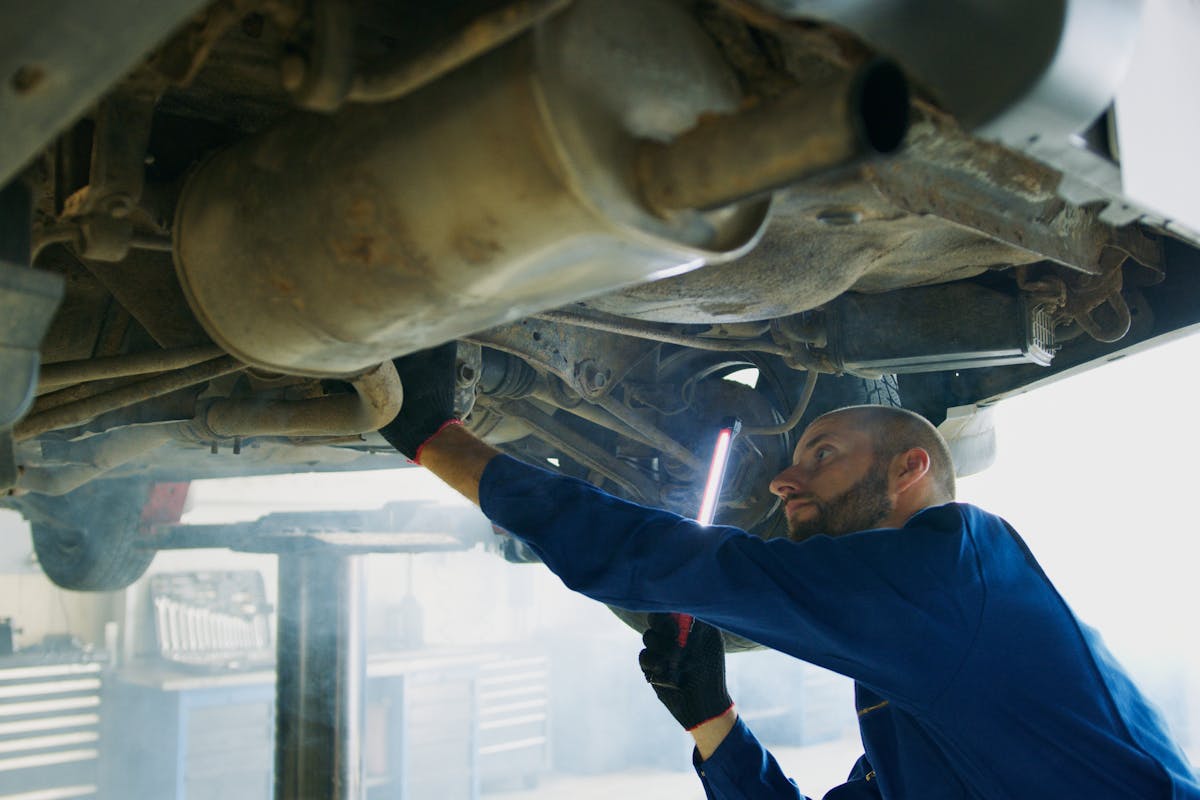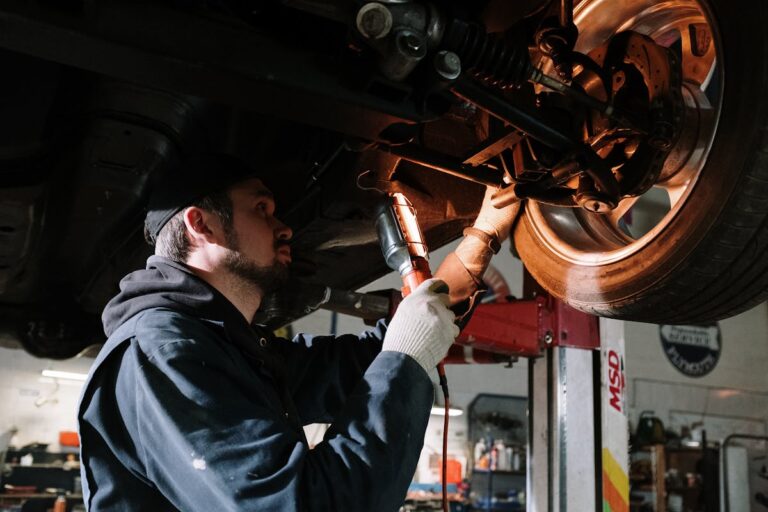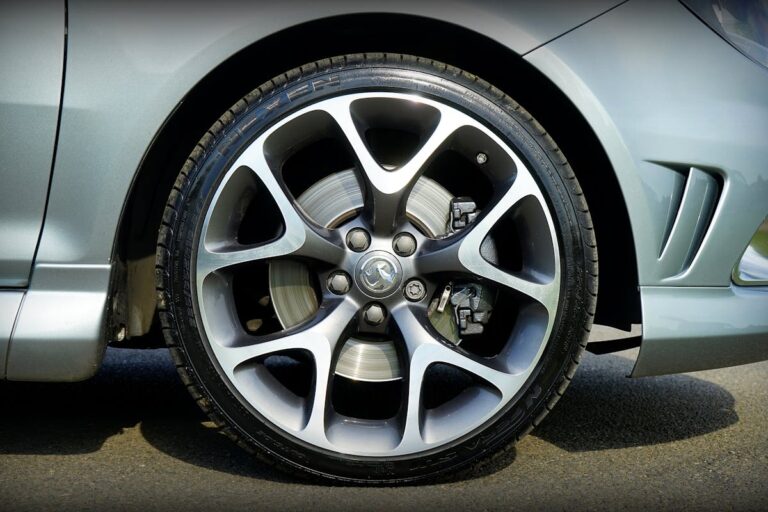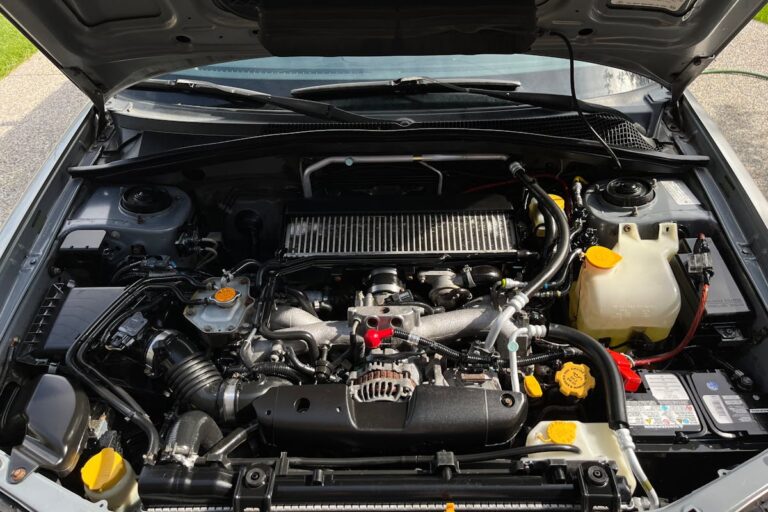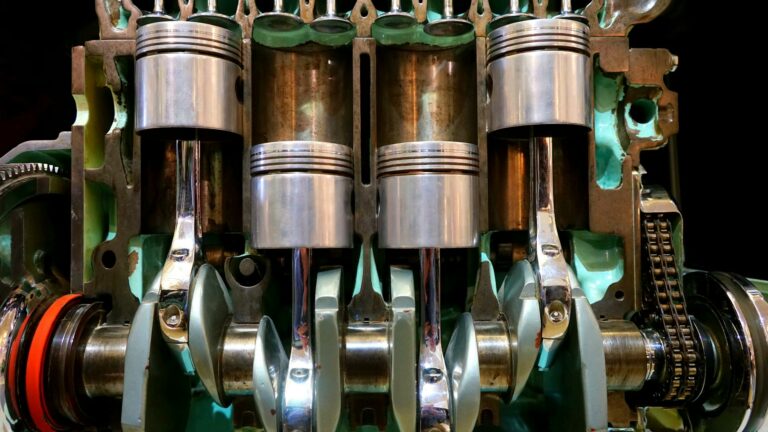Is an Exhaust Leak Bad
The critical implications of an exhaust leak on both vehicle performance and occupant health cannot be understated. From reduced engine efficiency and increased fuel consumption to the potential infiltration of harmful gases inside the vehicle, the consequences are far-reaching. As we discuss these impacts further, it raises the question: are we giving due attention to this prevalent but often ignored issue? And if not, what are the potential implications for drivers, passengers, and the environment at large?
Understanding Exhaust Leaks
From an automotive perspective, understanding exhaust leaks is essential for maintaining the overall health and performance of your car. The exhaust system is a complex assembly designed to channel hazardous gases safely from the engine to the vehicle’s rear. A leak in this system isn’t just a simple inconvenience; it can lead to significant issues impacting fuel efficiency, engine performance, and even passenger safety.
Exhaust leaks typically arise from several causes. The most common is the corrosion of the exhaust system, often due to prolonged exposure to adverse weather conditions and road salts. Corrosion can lead to small holes forming in the exhaust pipes, allowing gases to escape. Vibrations from daily driving can also lead to the loosening of exhaust system components, resulting in leaks. Additionally, physical damage from factors like road debris or accidents can cause sudden, severe leaks.
Understanding these leak causes is a vital part of proactive vehicle maintenance. By taking measures to protect the exhaust system from corrosion, checking for loose components regularly, and addressing physical damage promptly, you can prevent exhaust leaks and preserve your vehicle’s performance and safety.
Signs of an Exhaust Leak
Recognizing the symptoms of an exhaust leak is a critical aspect of vehicle maintenance, as these signs often serve as early warning indicators of potentially serious problems. Ignoring these symptoms can lead to escalated dangers, including health risks and further vehicular damage. It is essential to understand these signs, comprehend the implications of neglecting leaks, and know how to address such issues for efficient and safe vehicle operation.
Identifying Exhaust Leak Symptoms
A myriad of symptoms can signify the presence of an exhaust leak, a potentially serious issue that warrants immediate attention. This leakage originates from the exhaust system, which is a complex network designed to safely expel combustion byproducts from your vehicle.
The most evident symptom of an exhaust leak is an increase in noise levels. This noise is often described as a hissing or tapping sound that intensifies when the vehicle accelerates. It is due to the escape of high-pressure gases from a small hole in the exhaust system, producing a distinct sound wave pattern.
Another common sign is a noticeable decrease in power, performance, and fuel efficiency. This happens as the leak disrupts the ideal balance of air and fuel in the engine, causing it to work harder than necessary.
Additionally, you may observe a burning smell from the engine bay, due to the hot gases coming into contact with plastic components and other heat-sensitive materials nearby.
Dangers of Ignored Leaks
While it is critical to identify the signs of an exhaust leak, understanding the potential dangers associated with ignoring these leaks is equally important. Neglecting these leaks can lead to severe consequences, specifically regarding the vehicle’s performance, occupants’ health, and environmental impact.
- Vehicle Performance: Ignoring an exhaust leak can result in decreased fuel efficiency and engine power. The long term effects include damage to the engine due to excessive heat and pressure. This neglect can lead to costly repairs or even complete engine failure.
- Occupants’ Health: Leaked exhaust gases, such as carbon monoxide, can seep into the vehicle’s cabin. Prolonged exposure may lead to acute health problems like headaches, nausea, and in severe cases, unconsciousness or death.
- Environmental Impact: Vehicles with untreated exhaust leaks contribute more pollutants to the environment. This exacerbates air pollution, contributing notably to climate change and public health crises.
Clearly, the consequences of neglecting an exhaust leak extend beyond simple vehicle maintenance. It’s a matter of critical health, environmental stewardship, and long-term financial wisdom. Hence, addressing leaks promptly is non-negotiable for responsible vehicle owners.
Fixing Exhaust Leak Issues
To effectively address exhaust leak issues, it is fundamental to identify the signs early on. A louder-than-usual exhaust noise, decreased power and acceleration, and the smell of strong gas fumes are common indicators of a leak. A burning smell from the engine area can also signify melting components due to the heat of the escaping gases.
Once a leak is identified, the next step is exhaust repair. This process typically involves a thorough inspection of the system to pinpoint the exact location of the leak. The complexity of the repair depends on the location and severity of the leak. For minor leaks, high-temperature sealing techniques might be sufficient. These techniques involve the use of specific compounds that can withstand the heat and pressure of exhaust gases, effectively sealing the leak.
For severe leaks, however, sections of the exhaust system might need to be replaced. It is critical to utilize quality parts and expert services to guarantee the longevity of the repair. In all cases, addressing exhaust leak issues promptly can prevent further damage, improve vehicle performance, and guarantee the safety of the vehicle’s occupants.
Health Risks Associated With Exhaust Leaks
Exposure to exhaust leaks, an often overlooked hazard, poses considerable health risks to individuals. The primary culprit is exhaust fumes, a toxic blend of gases that can harm the human body in various ways. A particularly dangerous component of these fumes is carbon monoxide, an odorless and colorless gas that, when inhaled, interferes with the blood’s ability to transport oxygen.
Among the health threats linked to exposure to exhaust leaks are:
- Carbon Monoxide Poisoning: Inhaling high levels of carbon monoxide can cause symptoms like dizziness, confusion, unconsciousness, and even death in severe cases.
- Respiratory Problems: Chronic exposure to exhaust fumes can lead to respiratory issues such as bronchitis and asthma.
- Cardiovascular Risks: Long-term exposure to carbon monoxide and other toxic gases in exhaust fumes can increase the risk of heart disease.

Impact on Vehicle Performance
The performance of a vehicle is greatly impacted by an exhaust leak, with the most direct effects being seen in engine power, fuel efficiency, and emission control. A leak can lead to a reduction in engine power due to the loss of backpressure, which can disrupt the engine’s ideal air-fuel mixture. Furthermore, the decline in fuel efficiency can lead to increased fuel consumption, while the rise in damaging emissions can negatively affect the exhaust system and contribute to environmental pollution.
Engine Power Reduction
Diminishing the vehicle’s overall performance, an exhaust leak can lead to a significant reduction in engine power. Herein lies a fundamental aspect of engine efficiency, the balance between power output and resource usage. A leak disrupts this balance, causing a decrease in engine power and subsequently, performance tuning becomes necessary.
Exhaust leaks can be detrimental in several ways:
- Power Loss: The exhaust system helps control the flow of exhaust gases out of the engine. When a leak occurs, these gases escape prematurely, resulting in a loss of backpressure which is essential for optimum engine performance.
- Engine Wear: Leaks can cause the engine to work harder to achieve the same power output, leading to accelerated wear and tear. This not only shortens engine life but also increases the need for frequent maintenance.
- Erratic Engine Behavior: A leak can result in irregular engine behavior. Symptoms can range from stalling and rough idling to decreased acceleration.
In a nutshell, exhaust leaks are disastrous for engine power and efficiency. They undermine the engine’s ability to perform, necessitating performance tuning and causing premature engine degradation.
Fuel Efficiency Decline
Building on the aforementioned detrimental impacts of exhaust leaks on engine power, a more subtle but equally damaging consequence is a decline in fuel efficiency. The engine’s inability to function at its peak due to an exhaust leak leads to an increase in fuel consumption. This not only results in higher out-of-pocket costs for the vehicle owner, but it also places undue stress on the engine, potentially causing further damage.
Exhaust leaks can interfere with the vehicle’s oxygen sensors, which are responsible for regulating the air-fuel mixture. This can disrupt the balance, causing the engine to consume more fuel than necessary. Consequently, the vehicle’s fuel economy suffers, forcing the engine to work harder to deliver the same power.
For this reason, regular vehicle maintenance is essential. Quick detection and repair of exhaust leaks can prevent a notable decline in fuel efficiency. Simple maintenance tips include regular inspection of the exhaust system, paying attention to changes in engine performance, and fuel consumption rates. By adhering to these, vehicle owners can guarantee peak engine performance, thereby preventing a potential decline in fuel efficiency due to exhaust leaks.
Damaging Emissions Increase
An often overlooked but highly significant effect of exhaust leaks is the increase in damaging emissions, with a direct impact on vehicle performance. Emission leaks can cause a vehicle to fail an emissions test, resulting in possible legal ramifications and costly repairs.
- Emission Standards Non-Compliance: Emission leaks can lead to a significant increase in the release of harmful pollutants, causing vehicles to fail emission standards tests. This non-compliance can result in penalties and may require expensive modifications to bring the vehicle back into compliance.
- Decreased Air Quality: Emissions leaks can also contribute to a decrease in air quality. The increased levels of pollutants such as carbon monoxide, nitrogen oxides, and hydrocarbons contribute to environmental pollution, affecting not only the air quality around the vehicle but potentially contributing to wider environmental issues such as climate change.
- Reduced Vehicle Performance: The increase in emissions due to an exhaust leak can negatively affect the vehicle’s performance. Fuel efficiency can be reduced, and engine performance may be compromised, leading to potential damage and costly repairs.
Environmental Concerns of Exhaust Leaks
Amidst the multitude of issues associated with exhaust leaks, environmental concerns stand out prominently. Exhaust emissions from a vehicle with a malfunctioning exhaust system can have a significant environmental impact. These emissions are a major contributor to air pollution, releasing harmful substances such as carbon monoxide, nitrogen oxides, and particulate matter.
A deeper technical analysis reveals that when an exhaust leak occurs, the vehicle’s exhaust system is unable to effectively convert these harmful emissions into less harmful substances. This is because the leak disrupts the ideal flow of gases through the system, impairing the performance of the catalytic converter, a critical component designed to reduce the toxicity of exhaust emissions.
The result is an elevated release of unprocessed, harmful pollutants into the atmosphere. These pollutants have been linked to numerous environmental issues such as climate change, acid rain, and the depletion of the ozone layer. Additionally, the particulate matter in exhaust emissions contributes to the formation of smog, reducing air quality and visibility.
Why Exhaust Leaks Occur
How do exhaust leaks occur in vehicles? Primarily, exhaust leaks arise due to the degradation of the exhaust system, which is caused by a series of factors. An understanding of these leak causes is essential for vehicle owners and mechanics alike.
- Corrosion: The exhaust system is constantly exposed to harsh conditions, including heat, moisture, and chemicals. Over time, these elements can cause the system to corrode, leading to leaks.
- Physical Damage: Accidents, road debris, or even just regular wear and tear can result in physical damage to the exhaust system. Dents, holes, or cracks can form, providing a path for exhaust gases to leak out.
- Faulty Installation or Repairs: If the exhaust system isn’t installed or repaired correctly, gaps or loose connections can occur. These can turn into potential leak points.
Fixing an Exhaust Leak
Understanding the origins of exhaust leaks brings us to the next vital aspect: rectification of the problem. Fixing an exhaust leak is not a task for the untrained. It demands technical expertise, specific tools, and a thorough understanding of exhaust system maintenance. The process generally involves identifying the leak’s location, which could be the exhaust manifold, pipes, or muffler. The severity of the leak will determine the repair method.
For small leaks, technicians might use exhaust repair tape or putty. However, larger leaks necessitate the replacement of the damaged section or even the entire exhaust component, which can greatly increase repair costs. The specific model and make of the vehicle also often influence these costs.
Ultimately, the key to effective rectification lies in a prompt response. The longer an exhaust leak persists, the more damage it is likely to cause. As a result, as soon as a leak is detected, it’s essential to initiate the repair process. Resolving the issue promptly not only guarantees the safety of the vehicle and its occupants but also mitigates potentially higher repair costs in the future.
Preventive Measures for Exhaust Leaks
In the vast majority of cases, preventing an exhaust leak is considerably more cost-effective and less time-consuming than dealing with its aftermath. Through diligent preventive maintenance, potential exhaust system issues can be identified and rectified before they worsen into full-blown leaks.
There are three primary preventive measures that help guarantee the longevity and functionality of your vehicle’s exhaust system:
- Regular Inspections: Routine checks help detect early signs of wear and tear. Regular inspections of the exhaust manifold, catalytic converter, and other essential components can avert potential leaks.
- Timely Repairs: Addressing small issues promptly can prevent them from escalating into bigger problems. If inspections reveal compromised parts, prompt repairs or replacements are critical.
- Use of High-Quality Components: Opting for high-quality, durable components when replacing parts of the exhaust system can reduce the likelihood of leaks.
The technical aspects of preventive maintenance may seem demanding, but the rewards regarding cost savings and vehicle performance are worthwhile. The underlying principle remains – prevention is better than cure, especially when it comes to the exhaust system of your vehicle.
Frequently Asked Questions
How Often Should I Check My Vehicle for Exhaust Leaks?
For ideal exhaust system maintenance, it’s advisable to check your vehicle for exhaust leaks semi-annually. Utilize professional leak detection methods to guarantee accurate results and safeguard your vehicle’s performance and emission standards.
Can a DIY Repair for an Exhaust Leak Be Effective?
A DIY repair for an exhaust leak can provide a temporary solution, depending on the quality of repair materials used. However, it’s not often as durable or effective as a professional repair, particularly for larger leaks.
Are Certain Types of Vehicles More Prone to Exhaust Leaks?
Certain types of vehicles, particularly older models, may be more susceptible to exhaust leaks due to wear and tear. Proper vehicle maintenance and understanding of exhaust leak causes can greatly minimize this risk.
Does Car Insurance Usually Cover the Repair Costs of an Exhaust Leak?
Typically, car insurance policies do not cover the repair costs of an exhaust leak. This is generally considered a maintenance issue, which falls outside the scope of insurance coverage. Always verify this with your individual policy.
Will an Exhaust Leak Affect My Vehicles Fuel Efficiency?
Yes, an exhaust leak can greatly impact your vehicle’s fuel efficiency. Symptoms may include increased fuel consumption due to the engine working harder. Repair cost factors include the severity of the leak and labor rates.
